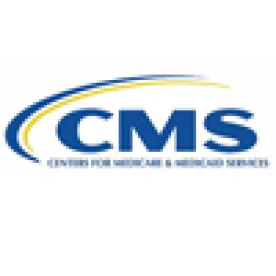This is our second blog post on compliance with the Medicare Secondary Payer (MSP) law. Over the past three years, enforcement trends have focused attention on this often-overlooked area of law and highlighted why providers and suppliers need to know more about it. In this post, we will discuss Medicare conditional payment and subsequent repayment requirements.
As a general rule, Medicare will make a conditional payment to a beneficiary if there is a delay in payment by the primary payer to keep the beneficiary from experiencing a gap in coverage.[1] Medicare may then pursue reimbursement of conditional payments from:
-
A beneficiary or other party, if both a primary and conditional payment were received;
-
A primary payer, if a conditional payment was made pursuant to liability insurance settlements, disputed claims under group health plans, workers’ compensation plans, or no-fault insurance; and
-
The beneficiary or provider, if the filing of an improper claim resulted in a conditional payment, unless the claim was a result of false information provided by the beneficiary and the provider complied with certain regulatory procedures.
These conditional payments must be reimbursed to Medicare within 60 days of receipt of payment. If a primary payer or provider fails to pay back the conditional payments, CMS may recover double the amount of the Medicare primary payment.[2]
Both beneficiaries and their fiduciary agents, such as attorneys, can be sued for recovery of improper conditional payments. In one recent case, a Medicare Advantage (MA) plan operated by Humana made a conditional payment to a beneficiary injured in a motor vehicle accident.[3] The beneficiary sued several insurance companies for payment, resulting in a settlement and the disbursement of settlement funds to the beneficiary’s attorney. Humana issued a demand letter to the beneficiary seeking reimbursement for its conditional payment, which it alleged was partly contained in the settlement amount. When the beneficiary failed to pay, Humana commenced a lawsuit against both the beneficiary and the beneficiary’s counsel to recover the funds. On a motion to dismiss by the beneficiary’s attorneys, the court ruled that the MSP allowed the MA plan to pursue recovery of conditional payments and double damages against beneficiary’s counsel, as “plain language fails to limit the parties against whom suit may be maintained” and that there is a private right of action that a MA can use to recover conditional payments pursuant to 42 USC §1395y(b)(3)(A).[4]
The take-away from this decision is that all parties involved in the medical treatment and payment process of a Medicare beneficiary, including payers, providers, the beneficiaries, and their counsel, as well as fiduciaries, should be conscious that payment obligations do not end once Medicare has cut a check. Counsel may also want to be aware of Medicare conditional payment obligations in settlement negotiations. For example, in an unpublished opinion, the Third Circuit affirmed a District Court’s ruling that the estate of David Trostle had not exhausted administrative review procedures and therefore the court lacked subject matter jurisdiction. The action was brought after Trostle received the wrong prescription from a pharmacy, causing him to fall gravely ill. While hospitalized, Trostle received a conditional payment, stopping Trostle from experiencing a gap in insurance coverage. As a result of the conditional payment, CMS asserted a lien against any potential recovery Trostle possibly would receive in order to recoup the funds disbursed in the conditional payment. CMS stated that the lien was for $1,212 and reserved the right to adjust the amount if necessary. Trostle’s actual medical costs paid by CMS for a sixty-six day hospital stay was nearly $100,000. Trostle settled the tort claim against the pharmacy which allegedly caused the injury, receiving $225,000 in July of 2014. After Trostle informed CMS of the settlement amount, CMS revised the lien amount substantially upward to $53,295. Trostle challenged the $53,295 lien, arguing that CMS induced Trostle to rely upon the $1,212 lien, a much lower number, when negotiating the settlement.
While the court found it could not assess the claim since Trostle had failed to exhaust all administrative review procedures, and therefore did not reach this issue, the facts of this case demonstrate a potential area of unknown for counsel, beneficiaries, and other fiduciaries who may attempt to secure settlements from NGHP’s without full knowledge of how conditional payments function.[5]
This is part 2 of 7 in the Medicare Secondary Payer Compliance series. Subscribe to our blog for future updates. Part 1 can be accessed here: Medicare Secondary Payer Compliance: An Introduction (Part I)
Andrew Kuder, a Law Clerk (not admitted to the practice of law) in the firm’s Newark office, contributed significantly to the preparation of this post.
[1] 42 USC § 1395y(b)(2)(B); 42 CFR §§ 411.21 & 411.24.
[2] 42 CFR § 411.24(c)
[3] Humana Ins. Co. v. Paris Blank LLP, 187 F. Supp. 3d 676 (E.D. Va. 2016).
[4] Id. at 681.
[5] Trostle v. Ctrs. for Medicare & Medicaid Servs., No. 16-4062, 2017 U.S. App. LEXIS 19431 (3d Cir. Oct. 5, 2017).





 />i
/>i

